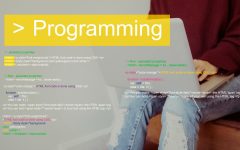Skill vs. Degree: What Matters More in Today’s Job Market?
September 15, 2025 2026-01-20 14:55Skill vs. Degree: What Matters More in Today’s Job Market?

Skill vs. Degree: What Matters More in Today’s Job Market?
You walk into an interview room holding your precious degree certificate in hand. The interviewer greets you with a smile and says, “Tell me about the skills you bring to this job.” Automatically, your papers become heavier. Is a degree sufficient, or do the skills take the spotlight?
This is no longer a theoretical question. It’s today’s real dilemma for millions of students and new graduates. The work environment has evolved. The debate of whether a degree or skills is more important has been put under the spotlight. So, what does it actually count when you need to get your dream job?
Let’s go deeper into why both are important, how they work together, and what you can do to build your optimal career path.
The Importance of a Degree
A degree has been for a long time the badge of knowledge, commitment, and formal education. It is evidence that you’ve invested years studying foundational things in your discipline.
Here’s why degrees continue to be important:
- Structured knowledge foundation
A degree provides in-depth, systematic knowledge of theory, principles, and frameworks.
- Credibility and recognition
Degrees serve as a common initial screening device used by employers, relying on institutions to validate ability.
- Access to opportunities
Some occupations require degrees as entrance requirements.
- Networking and exposure
Universities and colleges offer settings for the acquisition of soft skills, working on projects, and developing professional contacts.
The Power of Skills
Skills are what you do with your knowledge. They could be technical skills, communication, solving problems, or creative thinking.
- Why are skills in the limelight?
Job readiness, immediately
Employers need individuals who can immediately step in and apply practical expertise.
- Fitting into changing environments
Skills, particularly digital and interpersonal skills, enable you to adapt to changing work situations and technology.
- Results orientation
Skills show what you can do, not what you know.
- Relevance in a lifetime
Skills can be updated and developed at all times, making you a survivor in an ever-changing job market.
Why It’s Not Skills OR Degree — It’s Skills AND Degree
The current job market requires the combination of both. Neither independently assures success. Imagine a degree as your platform and skills as the tools you utilize to create upon it.
How they work together:
- A degree provides theory, skills provide practice
One accumulates knowledge, the other accumulates execution capacity.
- Skills make your degree real
Skills make your education tangible. Without them, your knowledge is abstract.
With them, you address actual problems.
- Employers want proof of both
Applicants who can demonstrate academic success and real-world experience stand out.
How to Hit the Right Balance
1. Spend in your education but don’t stop there
Make your degree serious, but then pursue internships, workshops, and certifications that create skills.
2. Pay attention to hard skills and soft skills
Technical skills are valuable, but communication, collaboration, and problem-solving make you stand out.
3. Practice by doing
Projects, freelancing, volunteer work, and side jobs give hands-on experience.
4. Be curious and continue to learn
Technology and industries change fast. Keep on developing your skillset in parallel with your knowledge.
5. Bring your skills and degree together
In interviews and resumes, emphasize how your education complements your skills and achievements.
Myths to Avoid
Myth: A degree guarantees a job
Degrees open doors but do not guarantee employment without relevant skills.
Myth: Only skills matter, degrees are outdated
Degrees remain important for foundational knowledge and credibility.
Myth: Skills can replace education entirely
Without foundational knowledge, skills may lack depth and context.
Conclusion:
The debate between degrees and skills is not one to win but one to achieve equilibrium. In today’s rapidly evolving job market, your degree is your starting point, and your skills are your wings.
Neither one by itself can fly you to where you want to go. Together, however, they enable you to fly higher, change faster, and shine brighter.
So, study hard. Practice hard. Develop your knowledge. Sharpen your skills. The ideal career mix is just around the corner.
Related Posts
How to Start Freelancing While Studying
The Future of Tech Careers for UG Students
Coding and Programming Tips for Beginners
Time for Hobbies: Why It Matters in College
Entrepreneurship Ideas for College Students
Search
Categories









